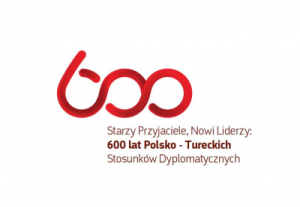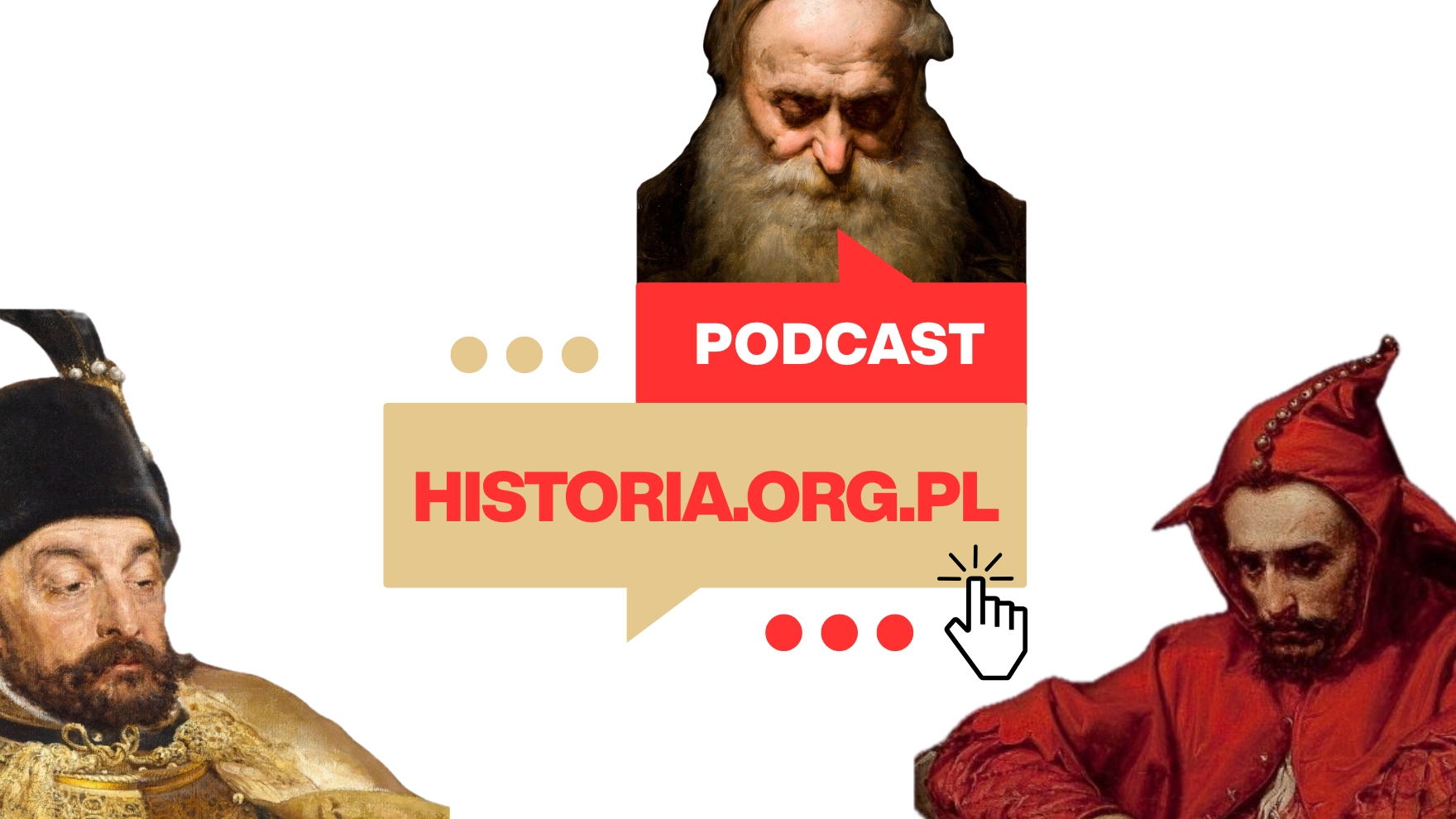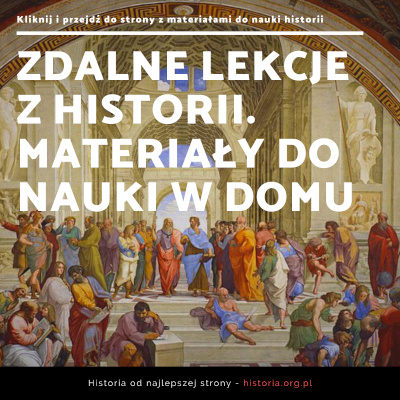Konferencja „Strefy kontaktów w stosunkach turecko-polskich (1414–2014)” [program] |
Na Uniwersytecie Warszawskim w dniach 6-8 czerwca 2014 r. odbędzie się konferencja pt. „Strefy kontaktów w stosunkach turecko-polskich (1414–2014)”. Jej organizatorami są Tureckie Towarzystwo Historyczne i Instytut Historyczny Uniwersytetu Warszawskiego.
 Spotkanie ma na celu uczczenie sześćsetlecia stosunków turecko-polskich nawiązanych w 1414 r., kiedy to posłowie króla Władysława Jagiełły z powodzeniem pośredniczyli pomiędzy królem węgierskim i cesarzem rzymskim Zygmuntem Luksemburskim oraz sułtanem Mehmedem I.
Spotkanie ma na celu uczczenie sześćsetlecia stosunków turecko-polskich nawiązanych w 1414 r., kiedy to posłowie króla Władysława Jagiełły z powodzeniem pośredniczyli pomiędzy królem węgierskim i cesarzem rzymskim Zygmuntem Luksemburskim oraz sułtanem Mehmedem I.
Począwszy od tego czasu kontakty polsko-osmańskie były ciągłe i niezwykle różnorodne. Ich bogactwo zostało nie tak dawno zaprezentowane w trakcie wystawy, jaka miała miejsce w Muzeum Narodowym w Warszawie i Muzeum Sztuki Islamskiej i Tureckiej w Stambule, których efektem stał się imponujący katalog pt. „War and Peace. Ottoman-Polish Relations in the 15th-19th centuries”. Wspomniana wystawa prezentowała obustronne relacje w trakcie wojny i pokoju, zagrożenia i zbliżenia. Po pokoju w Karłowicach (1699) konflikty zostały zastąpione porozumieniem i współpracą, a nawet projektami sojuszu. Polscy emigranci licznie przebywający na terytorium Imperium Osmańskiego w XVIII i XIX w. byli jednym z najważniejszych przyczyn intensyfikacji wzajemnych relacji. Po pierwszej wojnie światowej Ambasada Polska, jak również Ambasada Turecka znalazły się wśród pierwszych oficjalnych placówek dyplomatycznych w Ankarze i Warszawie. Po upadku Związku Radzieckiego wzajemne relacje polsko-tureckie weszły w nową fazę rozwoju, co szczególnie uwidoczniło się w strefie politycznej i ekonomicznej. Wyrazem tego są oficjalne i obustronne wizyty prezydentów i premierów Turcji i Polski w Ankarze i Warszawie.
Konferencja dotyczy komunikacji między jednostkami i grupami należącymi do światów „polskiego„ i „osmańskiego„ a później „tureckiego” oraz zaprasza do zgłębienia problematyki różnego rodzaju ”stref kontaktów”, którymi m.in. były dyplomacja, handel (w tym handel niewolnikami), konflikty zbrojne i sztuka. Jednym z najważniejszych problemów poruszanych w trakcie konferencji będzie rozszyfrowanie roli odgrywanej przez osoby należące do obu kultur, takich jak osmańscy dragomani polskiego pochodzenia w okresie wczesnonowożytnym, czy też polscy emigranci do Imperium Osmańskiego, którzy przyjąwszy islam przyjęli także służbę sułtańską w XIX wieku. Niezwykle ważne i nowatorskie impulsy oferuje perspektywa z zewnątrz (np. Anglików, Francuzów, Wenecjan, Węgrów czy Rosjan) na relacje polsko-osmańskie i polsko-tureckie. Celem konferencji jest przyczynienie się do wypracowania nowego postrzegania kontaktów Rzeczypospolitej/Polski z Wysoką Portą/Turcją, i vice versa. Szczególnie ważnym wydaje się być z tego punktu wiedzenia nawiązanie międzynarodowego dialogu zarówno przez doświadczonych naukowców, jak i młodych badaczy, zajmujących się kwestią komunikacji międzykulturowej.
Językami konferencji są angielski i turecki.
Wszelkie informacje dotyczące konferencji dostępne są na stronie internetowej: sempozyum.ttk.gov.tr/eng/2014-eng-sempozyum8.html
Program obrad międzynarodowej konferencji „Strefy kontaktów w stosunkach turecko-polskich (1414–2014)”
„Contact Zones in Turkish-Polish Relations (1414-2014)”
International Conference
Warsaw, 6-8 June 2014
Friday, June 6th
9:30-10:45 (The Column Room) - Opening Ceremony
Prof. Dr. Dariusz KOŁODZIEJCZYK
University of Warsaw, Director of the Institute of History
Prof. Dr. M. Metin HÜLAGÜ
Türk Tarih Kurumu Başkanı/President of Turkish Historical Society
Prof. Dr. Derya ÖRS
Atatürk Kültür, Dil ve Tarih Yüksek Kurumu Başkanı/President of Higher Institution of Ataturk Culture, Language and History
Prof. Dr. Yusuf Ziya ÖZCAN
Türkiye Cumhuriyeti Varşova Büyükelçisi/Ambassador of Turkish Republic in Warsaw
His Excellency Bülent ARINÇ
Başbakan Yardımcısı/Deputy Prime Minister of Republic of Turkey
(to be confirmed)
10.45-11.00 Coffee Break
Friday, June 6th
SESSION I
11:00-12:30 (The Column Room)
Military Campaigns and Ottoman-Polish Relations
Chair: Dariusz Kołodziejczyk
Mehmet Inbaşı, Erciyes University
Kamaniçe’de Türkler in 1672
[The Turks in Kamieniec (1672)]
Yılmaz Kurt, Ankara University
Hacı Ali Efendi’nin Kamaniçe Tarihi
[The chronicle of Kamieniec of Haci Ali Efendi]
Ahmet Arslantürk, Istanbul Medeniyet University
Kamaniçe Seferi’nde Osmanlı Saray Görevlileri
[The palace officials in the Kamieniec campaign of 1672]
12:30-13:00 – Coffee Break
13:00-14:00 (The Column Room)
Active players and pawns in international policy
Chair: Natalia Królikowska
Hacer Topaktaş, Istanbul University
Diplomacy between Istanbul and Warsaw in the last quarter of the 18th century
Iurii Chainskyi, University of Warsaw
The influence of the 1924 Georgian revolt on Polish Promethean Policy in Turkey in 1924-1926
14:00 – 15:30 – Lunch
15:30-17:00 (The Column Room)
On the crossroads of two cultures: Polish emigrès in the Ottoman Empire, part I
Chair: Andrzej Drozd
Zafer Gölen, Mehmet Akif Ersoy University
Jozef Bem (Murad Paşa’nın) Osmanlı Günleri
[Józef Bem in the Ottoman Empire]
Bayram Nazır, Gümüşhane University
Murad Paşa’nın Halep’te Ölümü ve Terekesi
[The death of Józef Bem in Aleppo and his last will]
Abdullah Temizkan, Ege University
Lehistanlıların Kafkasya’ya Birlik Gönderme Girişiminde Zor Seçim: Sefer Bey mi Yoksa Muhammed Emin mi?
[Difficult choice of Poles in attempt of dispatching troops to the Caucasus: Sefer Bey or Muhammed Emin?]
17:00-17:30 –Coffee Break
17:30 – 18:30 (The Column Room)
On the crossroads of two cultures: Polish emigrès in the Ottoman Empire, part II
Chair: Bayram Nazır
Mehmet Demirtaş, Bitlis Eren University
XIX. Yüzyılım İkinci Yarısında Lehistan’dan Osmanlı Memleketine Gelen Göçmelerin İskanları ve İhtiyaçlarının Karşılanmasına Dair Yapılan Çalışmalar
[Works conducted to settle and meet the needs of the immigrants who came to the Ottoman land from Poland during the second half of the 19th century]
Mehmet Akif Kireçci, Bilkent University
Tadeusz Gasztowtt (Seyfeddin Bey) – a turkophile in the Ottoman Empire (1881-1936)
SESSION II
11:00-12:30 (Room A)
Art as a field of interaction
Chair: Kıvılcım Metin Özcan
Tadeusz Majda, University of Warsaw
Works of art of symbolic meaning in Turkish and Polish Culture – A comparative approach
Suat Alp, Hacettepe University
Wars and Treasures as Means of Interaction: The Impact of Turkish Material Cultural Heritage in Polish Art and Culture
Fatma Coşkuner, Koç University
Travels, Empires and Artistic Connections: Sultan Abdülaziz and his court painter Stanislaw Chlebowski
12:30-13:00 – Coffee Break
13:00-14:00 (Room A)
Historical discourse and historical policy
Chair: Dariusz Milewski
Tetyana Grigorieva, Mohyla Academy, Kiev
The Myth of the Victory near Chocim (1621) in Ukrainian Historical Discourse of the 17th Century
Anastasia Baukova, Ivan Franko National University of Lviv
Siege of Lviv in 1672: historical memory and artistic image
14:00 – 15:30 – Lunch
15:30 – 17:00 – (Room A)
Perception of Polish-Ottoman relations
Chair: Felicia Rosu
James Collins, Georgetown University
Tale of Three Polities: The Polish-Lithuanian Commonwealth, the Ottoman Empire, and the Kingdom of France
Radu Paun, CNRS, Paris
Wavering Crusaders. Moldavian and Wallachian Perceptions of Polish-Ottoman Relations, 15th-16th Centuries
Michał Wasiucionek, EUI Florence Political Factionalism in the Middle Ground: Danubian Principalities as the Space of Factional Overlap between Ottoman Empire and Polish-Lithuanian Commonwealth in the Seventeenth Century
17:00-17:30 –Coffee Break
17:30-18:30 (Room A)
Making diplomacy in Istanbul
Chair: James Collins
Alicja Borys, Masaryk University Brno
Silesian members of the Emperor’s diplomatic missions to the Ottoman court in the 16th century
Gabor Karman, Hungarian Academy of Sciences
Polish–Transylvanian Contacts and Conflicts at the Sublime Porte in the Seventeenth Century
Saturday, June 7th
SESSION I
9:30-11:00 (The Column Room)
Poland and Turkey in the first half of the 20th century
Chair: Jakub Wódka
Nuri Köstüklü, Konya Necmettin Erbakan University
Arşiv Belgeleri Işığında Birinci Dünya Savaşında Polonya’da Şehit Olan Türkler ve Türkiyede Ölen Polonyalı Askerler Üzerınde Bazı Tespitler
[Some observations in the light of archival documents on Turks martirised in Poland and the Polish soldiers died in Turkey]
Ahmet Altıntaş, Afyon Kocatepe University
Arşiv Belgelerine Göre Osmanlı- Polonya İlişkileri’nde Esirler (1916-1923)
[Prisoners in Ottoman – Poland relations as revealed in the archival documents (1916-1923)]
Nuray Özdemir, Abant İzzet Baysal University
Ahmet Ferit Tek’in Büyükelçiliği Döneminde Türkiye ve Polonya Arasındaki İlişkiler (1932-1939)
[Relationships between Turkey and Poland during Ahmet Ferit Tek’s Ambassadorship (1932-1939)]
11:00-11:30 – Coffee Break
11:30-12:30 (The Column Room)
Insiders or outsiders?
Chair: Hacer Topaktaş
Paulina Dominika Dominik, University of Oxford - MSt Orient-Institut Istanbul
From Young Ottomans to Young Turks: Contribution of Polish political émigrés to the modernization of the Late Ottoman Empire – ideological aspect
Katarzyna Papież, University of Sorbonne (Paris IV)
Strange lives of Polish Men and Women: Jan Alojzy Pruski
13:00-14:30 – Lunch
14:30 – 16:00 – (The Column Room)
The Polish-Lithuanian Commonwealth and the Ottoman Empire in the 17th century
Chair: Mehmet İnbaşı
Yücel Öztürk, Sakarya University
Osmanlı–Lehistan Ilişkilerinin Esasları, Unsurları, ve Aktörleri
[Principles and actors in Ottoman-Polish relations]
Emine Erdoğan Özünlü, Gazi University Hotin’in Askeri ve Stratejik Açından Öneminde Dair Bazı Görüşler (Cebe Defterleri Işığında)
[On the strategic and military importance of Hotin (basing on the Cebe registers)]
Bilgehan Pamuk, Gaziantep University
II. Kuzey Savaşı’nda Osmanlı Lehistan İlişkileri Üzerine Bazı Gözlemler
[On Ottoman-Polish Relations in the Second Northern War]
16:00 – 16:30 – Coffee Break
SESSION II
9:30-11:00 (Room A)
Accounts of the individual travelers
Chair: Rudolph Matthee
Szymon Górski, Poznań
Hieronim Łaski’s Diary (1540-1541) as a Testimony to Ottoman-Polish Contact
Michael Połczyński, Georgetown University
The Relacyja of Sefer Muratowicz: 1601-1602 private royal envoy of Sigismund III Vasa to Shah ‘Abbas I
Natalia Królikowska, University of Warsaw
Polish missionaries in the Crimean Khanate and Caucasia in the 17th century
11:00-11:30 – Coffee Break
11:30-13:00 (Room A)
Turkish factor in Polish inner and foreign policy
Chair: Gabor Karman
Szymon Brzeziński, University of Warsaw
Polish-Ottoman relations and the beginnings of the Principality of Transylvania
Felicia Rosu, Leiden University
Friend or Foe of the Turk? The Fear Factor in Polish-Lithuanian Elections, 1572-1587
Andrzej Drozd, Adam Mickiewicz University
Ottoman influences on the Lithuanian Tatars in the Early Modern Period
13:00-14:30 – Lunch
14:30-16:00 (Room A)
Polish-Ottoman frontier
Chair: Radu Paun
Dariusz Milewski, Cardinal Stefan Wyszyński University in Warsaw Negotiations instead of war: Polish-Ottoman diplomatic contacts 1627-1630
Andrii Zhyvachivskyi, Polish Academy of Science
The Role of Bakhchisaray and Kefe in the Ottoman-Polish Relations in the First Half of the Seventeenth Century
Mariusz W. Kaczka, Berlin
The character of the Ottoman-Polish diplomatic relations in the first quarter of the 18th century. Great politics and small frontier space
JOINED SECTION
16:30-18:00 (The Column Room)
Polish-Turkish relations after 1939
Chair: Tadeusz Majda
Jakub Wódka, Polish Academy of Sciences
Foreign policies of Poland and Turkey. Identifying the common grounds, tracing the differences
Adam Szymański, University of Warsaw
Polish-Turkish Relations after 1989
İsmail Hakkı Demircioğlu, Karadeniz Technical University
Representation of Poland and Poles in Turkish history textbooks
18:00 – 18:30 – Closing Ceremony (The Column Room)
Sunday, June 8th
9:00-19:00 – The Conference excursion
Lubisz czytać nasze historie?
Na historia.org.pl codziennie opowiadamy dzieje Polski i świata tak, jak na to zasługują - rzetelnie, pasjonująco, z szacunkiem do faktów. Ale żadna opowieść nie przetrwa bez tych, którzy chcą jej słuchać i ją wspierać.
Postaw nam wirtualną kawę - to darowizna, która realnie pomaga nam działać dalej. To dzięki takim gestom możemy nadal pisać o zwycięstwach, bohaterach i wydarzeniach, które zbudowały naszą tożsamość.





